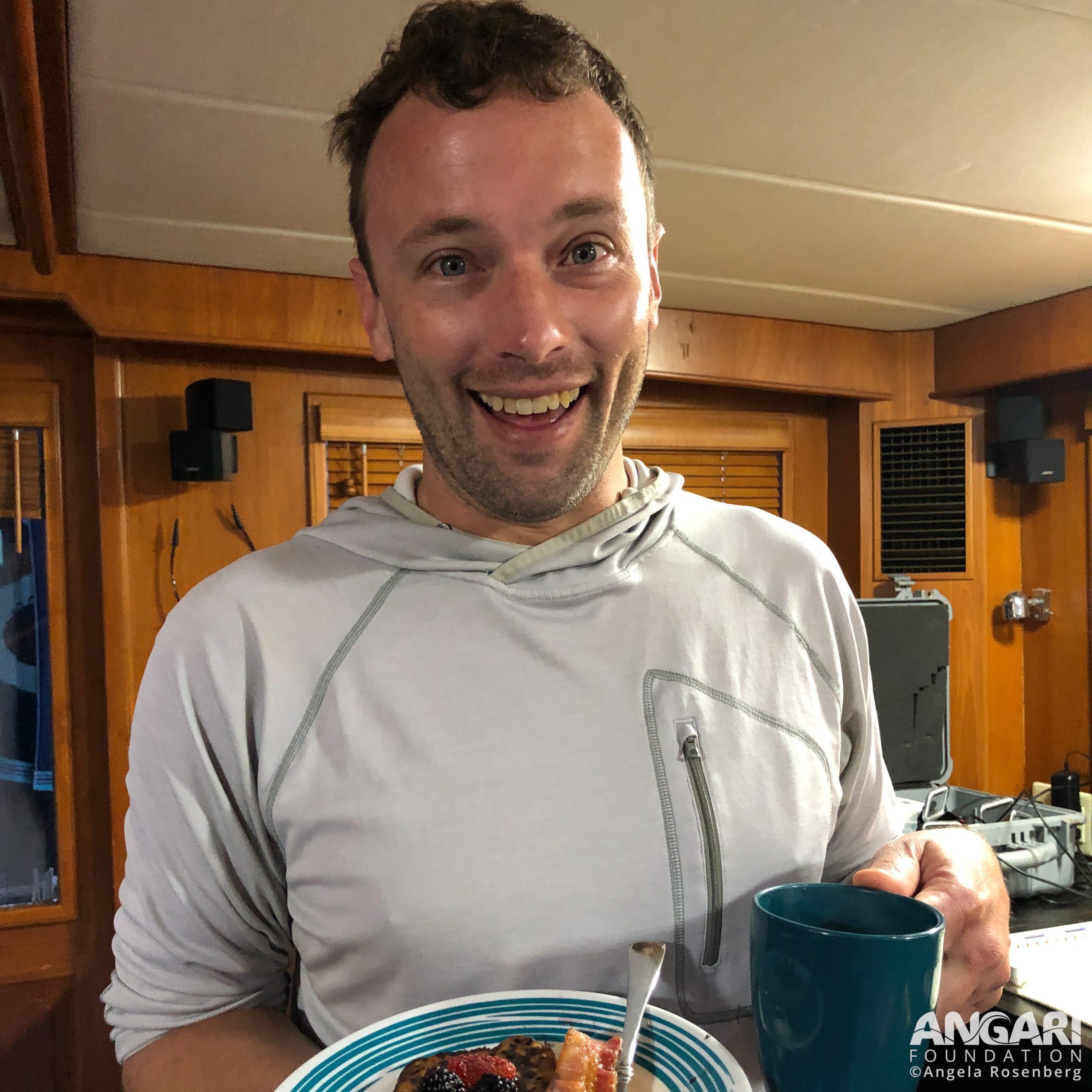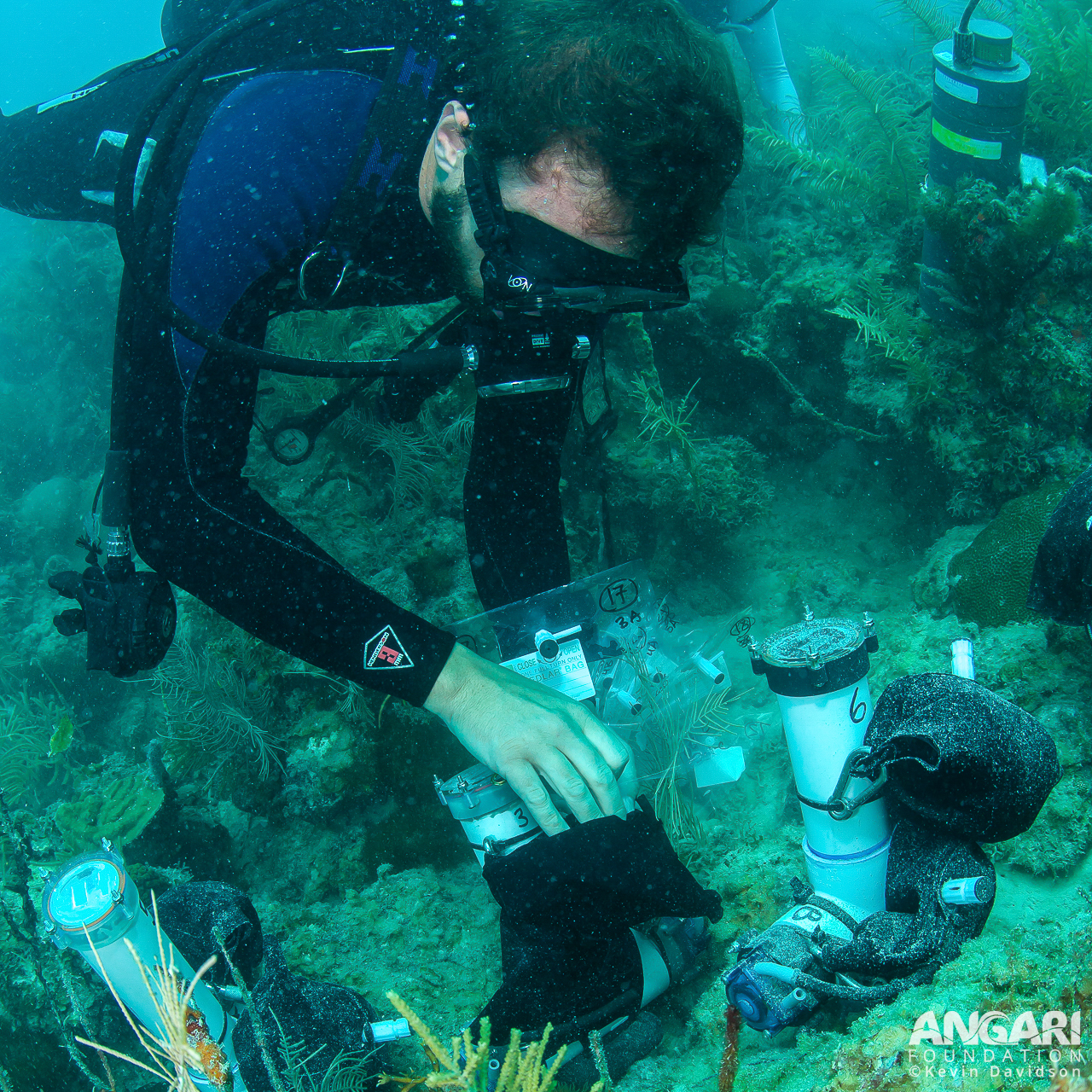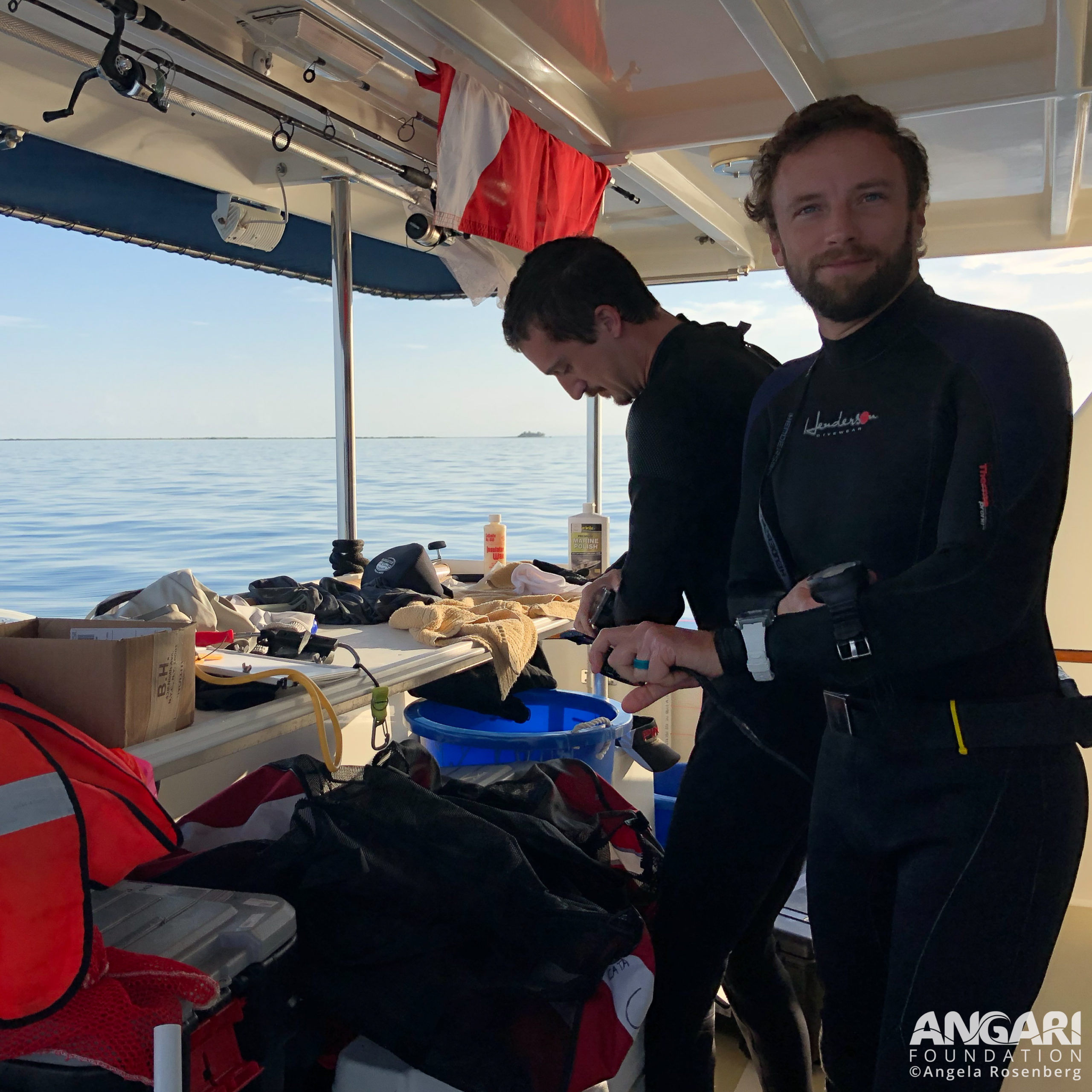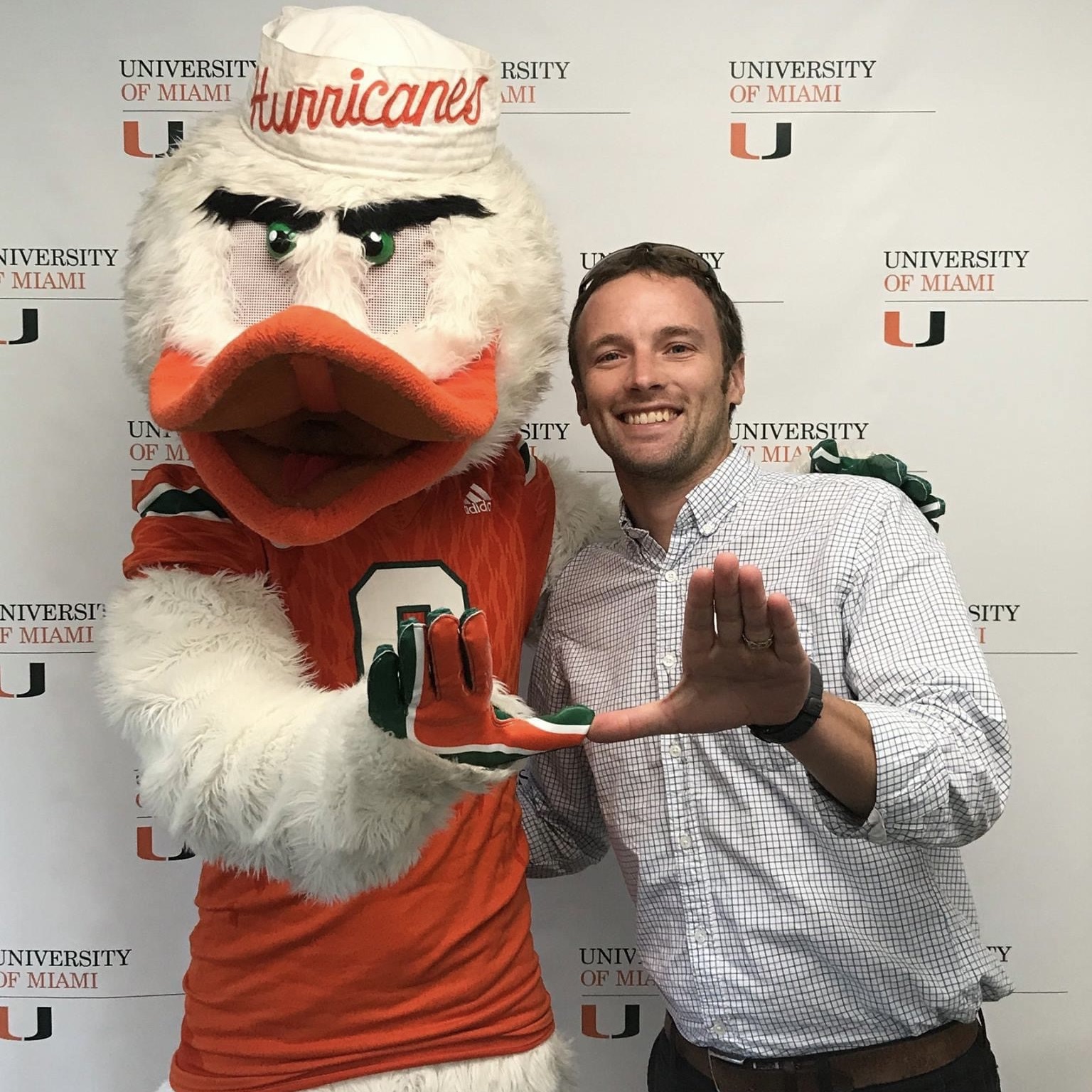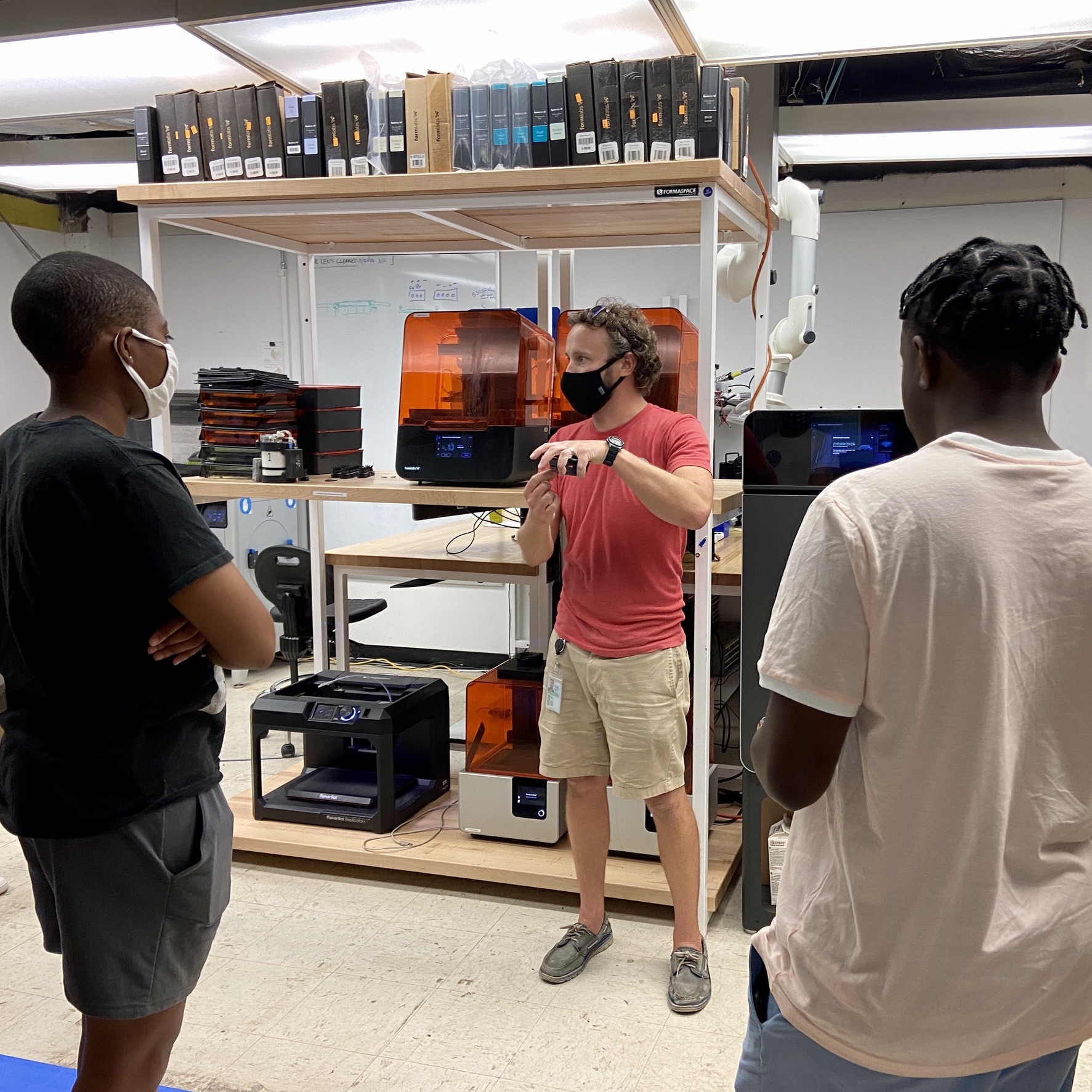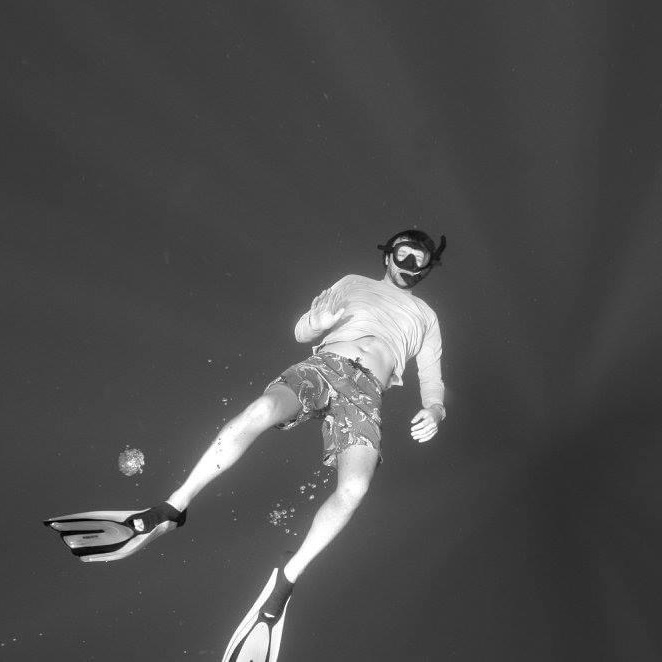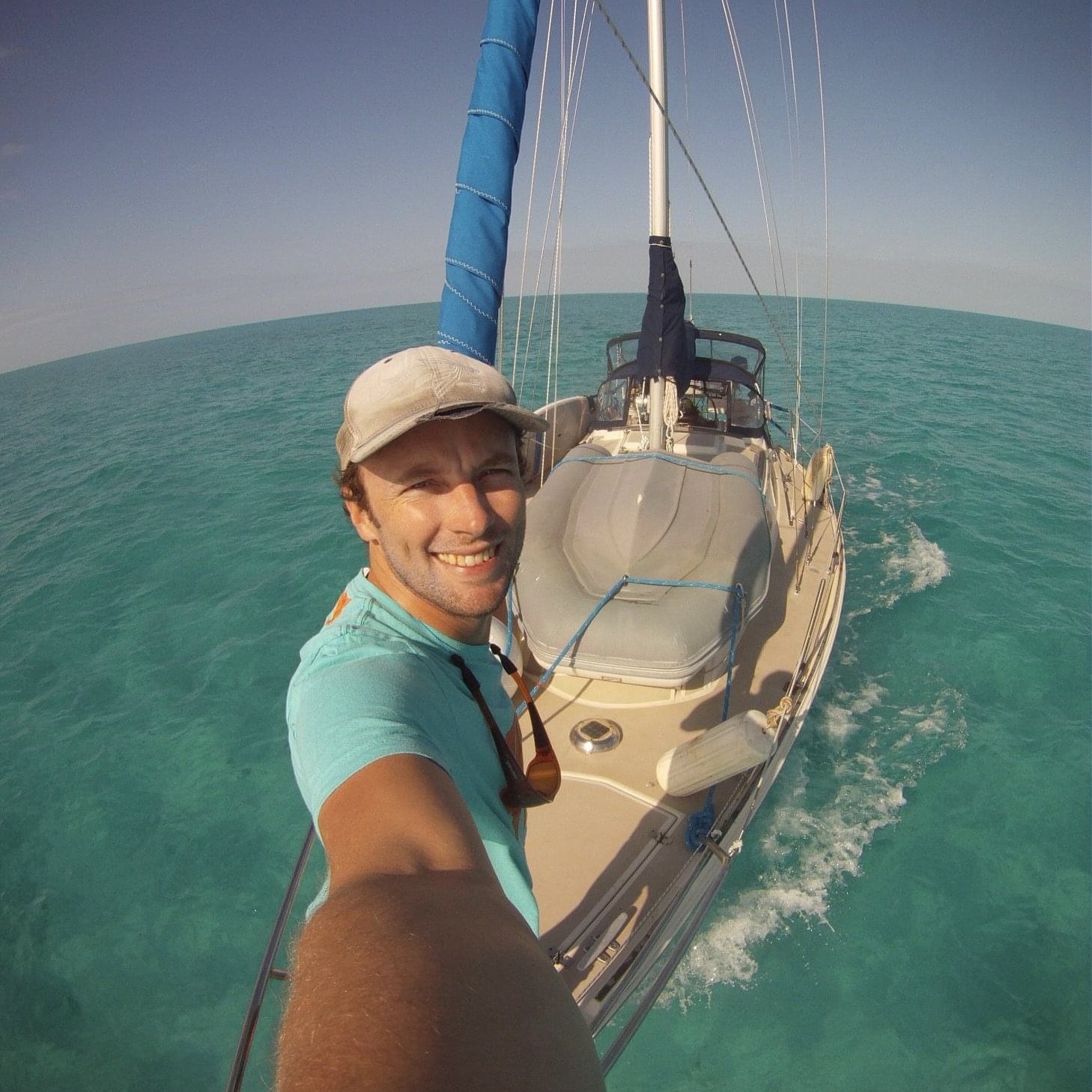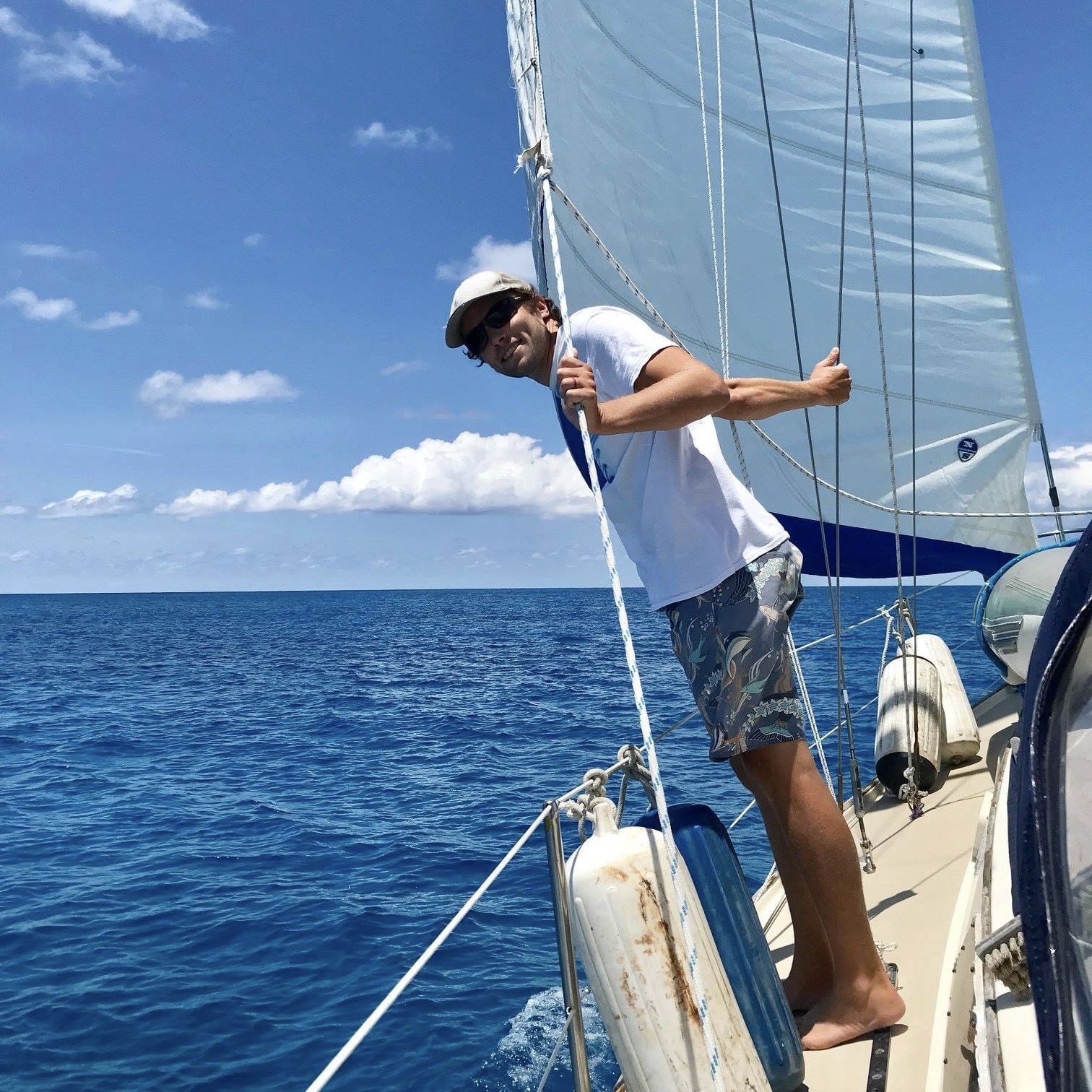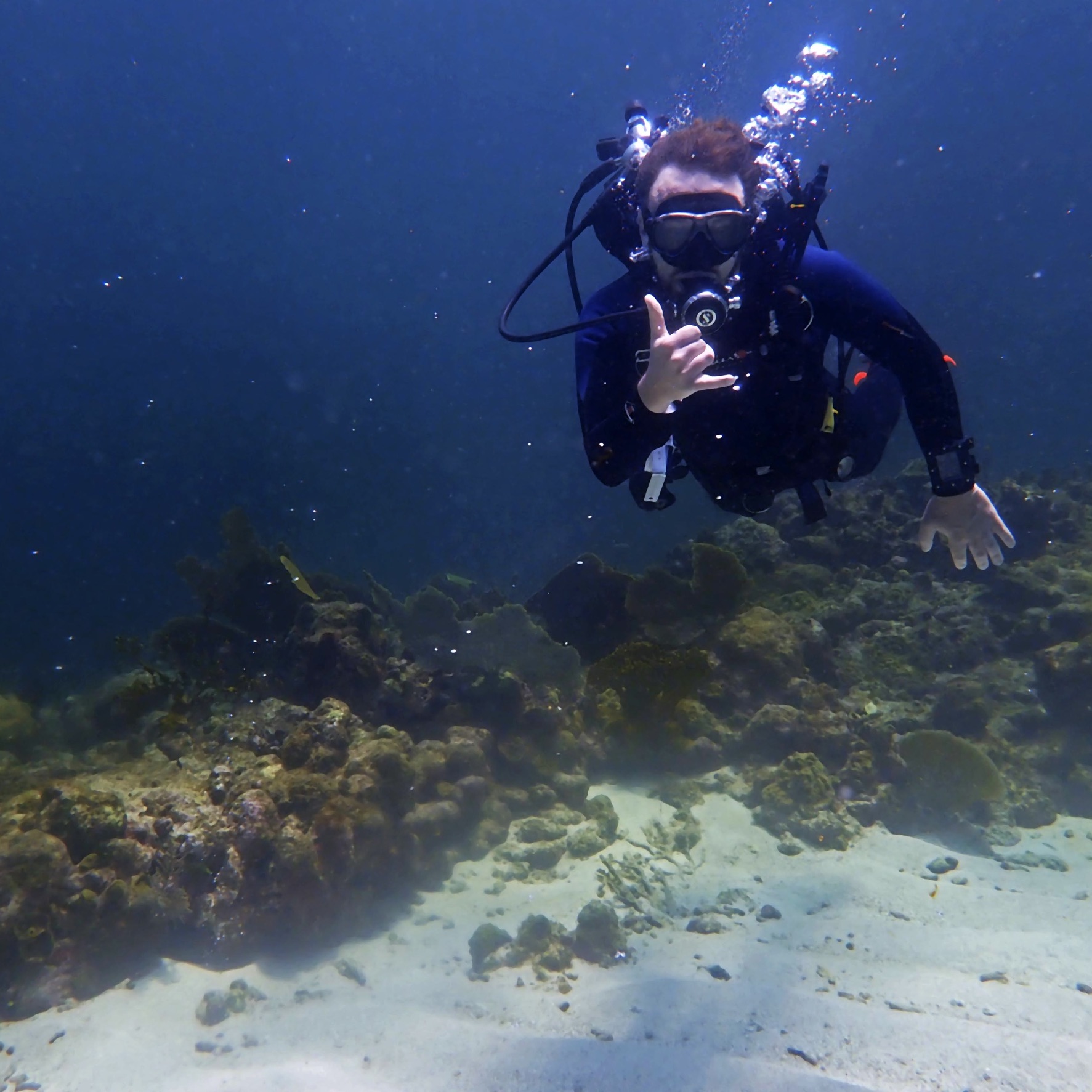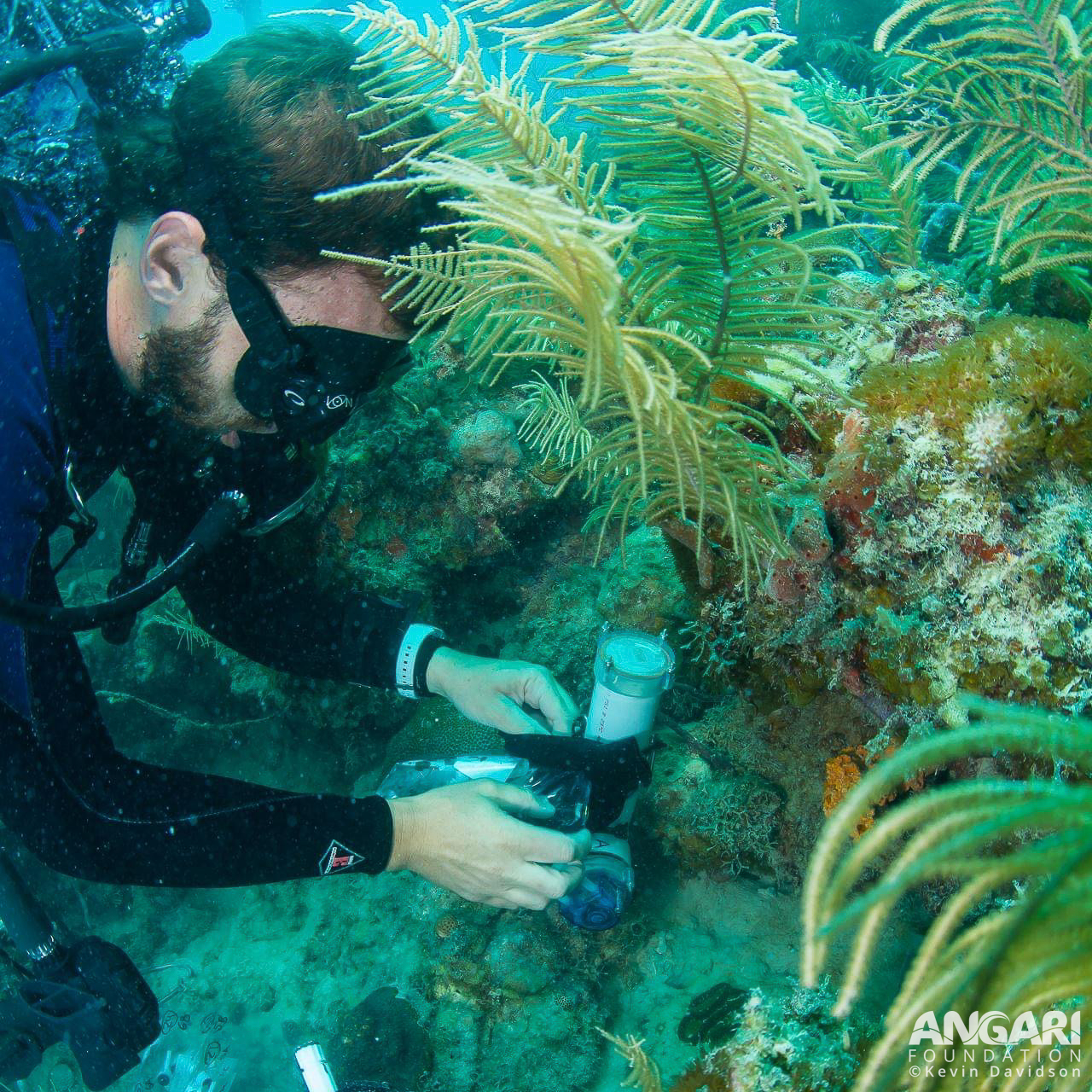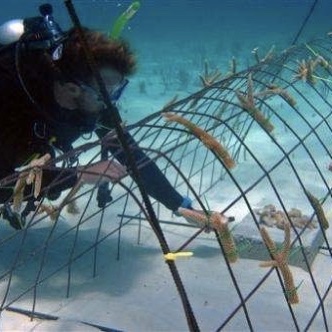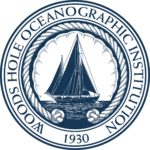
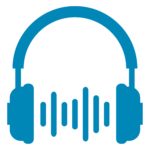

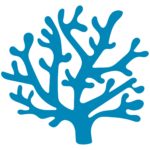
Meet Nate Formel
I am a research assistant at Woods Hole Oceanographic Institution in the Sensory Ecology and Bioacoustics Lab where our work focuses on understanding the sensory biology of marine organisms and how they use it to detect and relate to their environment. My research interests are broad, having focused much of my professional career on coral reef ecology and restoration. In this position, and in my previous position as a research associate at NOAA’s Atlantic Oceanographic and Meteorological Lab (AOML), I use open-source technologies to engineer solutions to research needs to improve the work I’m carrying out along with general access to these tools to help democratize science. Throughout my marine science education and career, I’ve been lucky enough to be taught and mentored by some incredibly inspired and capable scientists. I try to pay it forward through outreach and educational opportunities to foster enthusiasm and excitement for marine science and conservation and to inspire the next generation of marine researchers.
2013 M.S. Marine Affairs and Policy, University of Miami
2008 B.S. Biology with Concentration in Marine Biology, Northeastern University
Get To Know Nate
I grew up in a split of rural upstate New York and the island of Puerto Rico. My parents’ adventurous and supportive spirit allowed me the opportunity to try out diverse experiences, and the area of interest I was most passionate about was the ocean. During undergrad, I took advantage of all and any volunteer opportunities I could, and these experiences led to a narrowing of my focus to coral reefs. My path since has been winding through marine conservation and science outreach, SCUBA instruction, research and engineering, allowing me to build skill sets and experience that fit with my interests and expand the opportunities available to me.
The goal to save ocean ecosystems in the face of global environmental issues like ocean warming can be daunting, but at the same time it’s inspiring as it highlights the necessity of this work. Finding answers to questions that lead to tangible changes is a very validating and rewarding experience and helps guide research choices to ensure our work makes a difference.
Change is the only constant. Some days I’ll find myself in front of a computer coding and data crunching, other days I’ll be soldering electronics to build tool prototypes, and on my favorite days I’m out on the water SCUBA diving and surveying reefs and collecting samples.
Coral reefs supply a host of ecosystem services to us and the ocean. They serve as an important habitat for ~25% of all marine life, they protect our coastlines, and they serve our economy through fishing and tourism. On top of that they’re an incredible natural wonder, which anyone who’s had the fortune of exploring will tell you. Unfortunately global impacts from industry and the growing human population are warming and polluting our oceans, hurting the ability of coral to grow and survive and causing a loss of those ecosystem services. While we fix our planet and the way humans live, coral restoration serves as the best method of maintaining and hopefully recovering coral reefs so they can persist into the future. It’s not the fix, but it’s a way to help coral survive until we can stabilize their environment.
The ocean is a noisy place with constant water movement and audible interactions between animals and their environment. Many of these noises serve a purpose. By studying the acoustics of a reef we can understand what individual auditory cues might mean, allowing for simple, noninvasive and passive monitoring techniques to quantify the health of coral reefs. Better understanding of what a healthy reef sounds like might help researchers enhance reef health by simulating healthy reef’s soundscapes to encourage animal settlement and coral reef recovery (e.g. if you build it, they will come).
Yes. Coral and the inhabitants of coral reefs generally respond to noise pollution created by human activity, but the extent to which it impacts them is unclear. A better understanding of how coral, fish and invertebrates respond to noise pollution, and the duration and extent of that impact, is needed to understand how big a concern noise pollution is for coral reefs.
Landscape photo mosaics are the stitching together of thousands of photos taken of a reef from a single visit or time point into one continuous image that allows researchers to refer back to a site and examine exactly what the reef (and its residents) looked like on that visit from the convenience of their office. Photos can be sampled and resampled to answer different questions, and as our methods of analysis improve these mosaics can be re-examined. Consecutive mosaics can be compared to quantify exact changes to the habitat and assess the impact of environmental changes over that time. Compared with traditional visual survey methods, reliant on a diver’s notes and observations, photomosaics have greater utility.
I want to be a part of the solution, whereby ocean ecosystems persist into the future for our children’s children to see and be impressed by. Specifically, I would like my research to guide the mitigation that we implement to offset at least a portion of the harm done to the ocean by humanity.
The internet and the advent of inexpensive electronics in the form of compact microcontrollers and motors has made automation of sampling and surveying technologies relatively accessible for researchers. Automation standardizes and expands our capabilities as researchers. My goal is to apply these open-access resources to my research to make it more efficient and effective. I’ve worked with a team to design, build, test and apply two remote submersible automated samplers, one for carbonate chemistry and the other for eDNA. These tools allow us to collect more data, at times that normally would be inconvenient at best, if not impossible, without these samplers, and to do so in a consistent and standardized way.
Science gave me a fulfilling way to satisfy my desire to work in, on, and around the ocean. It gave me the opportunity to work in a field I’m passionate about, challenging me with the constant need for expanding my experience and skill set, and it enhanced my understanding and appreciation for the ocean and coral reefs.
Take advantage of all opportunities available to you. The experiences that guide you away from something are arguably as important as the ones that inspire you, so go out there and try things out.
Interview conducted in September 2022

